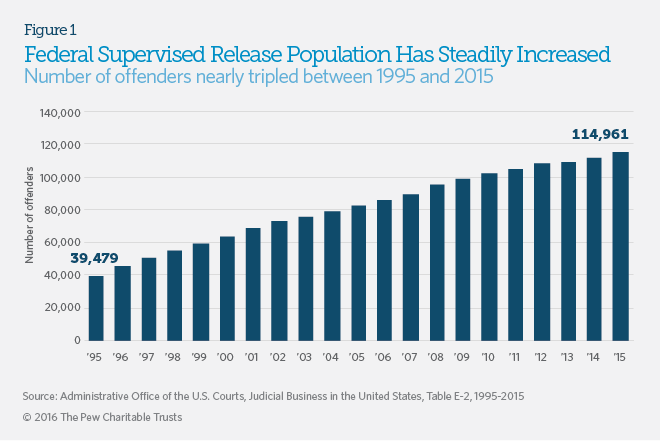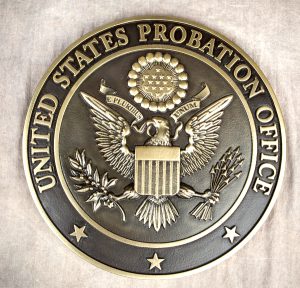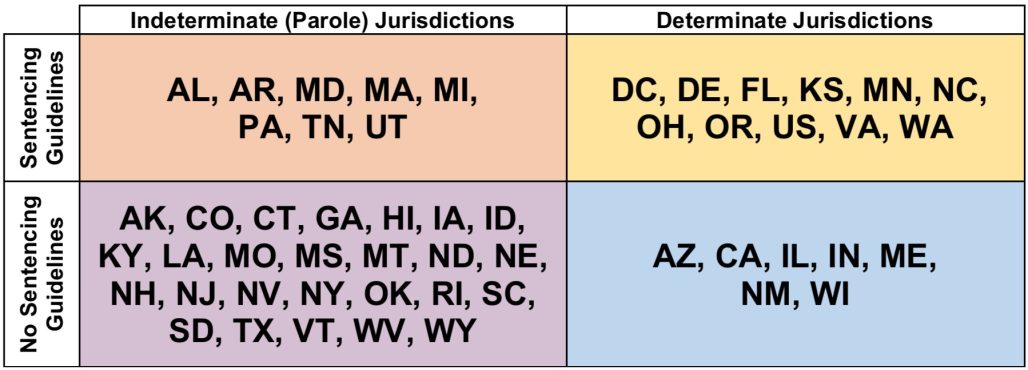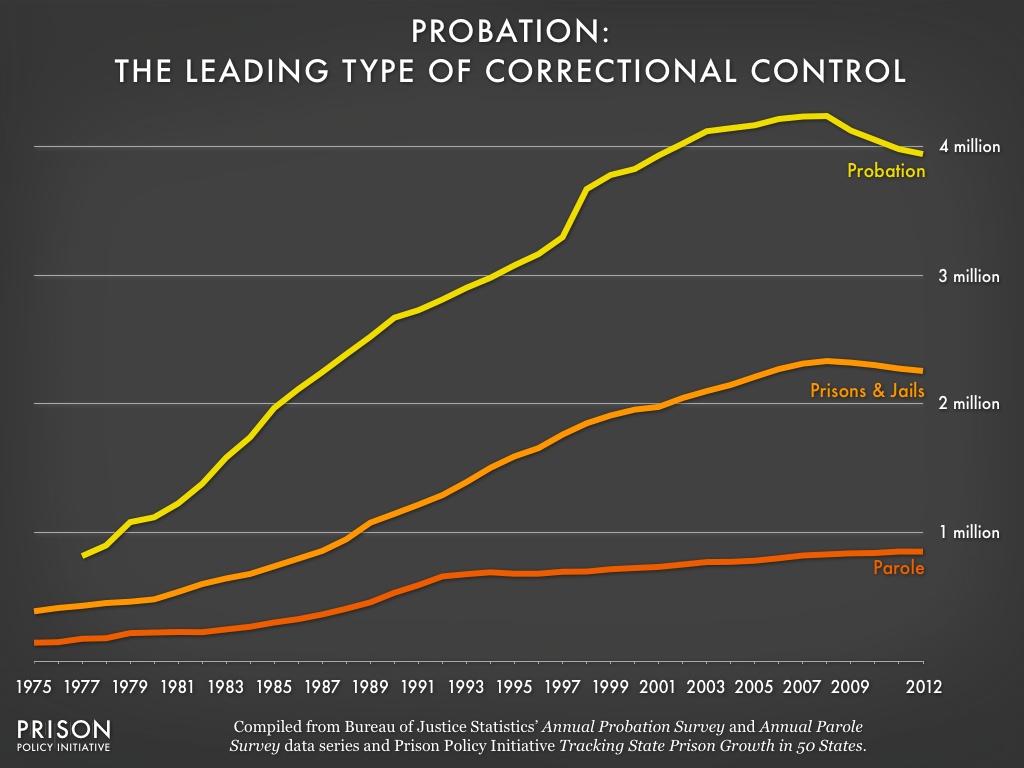Supervised Release vs. Probation vs. Parole
Contents
- Supervised Release vs. Probation vs. Parole
- What is Supervised Release?
- What is Federal Probation?
- What is Parole?
- Types of Offenses that Can Lead to Supervised Release or Probation
- How is Supervised Release Different from Parole or Probation?
- Length of Supervised Release and Probation
- Probation Instead of Prison Time
- Conditions of Supervised Release and Probation
- FAQs
- What is a supervised release order?
- Is supervised release not parole?
- What is the goal of supervised release?
- What does 3 years of supervised release mean?
- Who decides mandatory and or supervised release?
- What does revocation of supervised release mean?
- Is parole the same as release?
- Are US probation officers law enforcement?
- What is the maximum supervised release federal?
- What is the difference between post-release supervision and parole?
- Sources
Supervised release is a period during which a person is required to serve under the supervision of a probation officer after completing a prison sentence for a federal offense in the United States. It is similar to parole, a period of supervision a person serves after being released from prison for a state offense. However, supervised release is a distinct concept used for federal crimes.
Supervised release and parole both involve post-incarceration supervision. However, federal probation differs as it can be a sentencing alternative to serving time in a federal prison.
During a supervised release, the person must comply with specific conditions, such as regularly reporting to a probation officer, submitting to drug tests, and refraining from committing any new crimes. The probation officer monitors the person’s compliance with the conditions and reports any violations to the court.
If the person violates the conditions of supervised release, the court may revoke the supervised release and order the person to serve the remaining sentence in prison. On the other hand, if the person successfully completes the supervised release period, they will be discharged from supervision and will have fulfilled their obligation to the criminal justice system.
What is Supervised Release?
Supervised release is a term used in the criminal justice system to describe a period of post-incarceration supervision that a convicted offender may be subject to. It is a sentence that is served outside of prison and usually begins after a person has completed their prison sentence.
During this period, offenders are required to meet regularly with a probation officer, maintain employment, and adhere to certain conditions set by the court. The conditions of supervised release can vary widely and may include drug or alcohol testing, community service, and electronic monitoring.

Unlike imprisonment, which is carried out immediately after being convicted, supervised release is imposed for a set term of years – typically 3 or 5 – and entails additional court-mandated regulations and restrictions. During this time, the defendant is monitored closely by their probation officer to ensure that they are adhering to all requirements imposed upon them. Supervised release is not meant to be punitive in nature, but rather to provide an extra layer of accountability for those who have recently been released from prison and to aid them in reintegrating back into society.
Unlike probation, which is a sentencing option that is offered by a judge in lieu of jail time, supervised release is a mandatory requirement in some cases, particularly for federal offenses. It is often used in cases where a person has been convicted of a serious crime and the court feels that they pose a risk to the community.
Supervised release is intended to help offenders transition back into society and reduce the likelihood of reoffending. It is a way to monitor and support individuals as they reintegrate into their community and work towards becoming productive members of society again.
What is Federal Probation?
Federal probation is a type of post-conviction supervision imposed by a federal court in the United States. Federal probation is an alternative to imprisonment that allows offenders to serve their sentences in the community while supervised by a probation officer.

Federal probation aims to promote rehabilitation, reduce recidivism, and protect the public. Probation officers work with offenders to develop a supervision plan that includes conditions tailored to the individual’s needs and risks, such as drug testing, treatment programs, and employment requirements. Offenders on federal probation are required to comply with the conditions of their probation, and any violations can result in revocation and imprisonment.
Federal probation is generally available to offenders convicted of certain federal offenses, such as white-collar, drug, and firearms offenses, who meet specific eligibility criteria. The length of federal probation varies depending on the offense and the individual circumstances of the case.
What is Parole?
Parole is an early, conditional form of release from prison that allows an inmate to serve the remainder of their sentence outside of confinement. In order to be considered for parole, an inmate must have generally served a portion of their sentence and exhibited good behavior during their incarceration. It is important to note that if granted parole, an individual remains under the jurisdiction of the parole board or correctional authority for the duration of their sentence.

Incarcerated individuals who are eligible for parole consideration may submit requests to the parole board. If their request is approved, the board or other corrections official will then set conditions for the release. The parole board or correctional authority will retain jurisdiction over the parolee throughout the duration of their sentence. In the event that a parolee violates any of these conditions in any way, they may face repercussions such as modifications to their parole terms or revocation of parole. In that case, they would then be repatriated to prison to complete the remainder of their sentence.
Types of Offenses that Can Lead to Supervised Release or Probation
There are a variety of offenses that can lead to supervised release or probation. These can range from minor infractions to major criminal offenses. The type of offense committed will often determine the severity of the supervised release or probation.
For example, minor infractions such as traffic violations or misdemeanors may result in a less strict form of supervised release or probation, while major criminal offenses like drug trafficking or violent crimes may result in a more stringent form of supervised release or probation.
In general, non-violent offenses are more likely to result in probation, whereas more serious offenses such as violent crimes, sex offenses, or drug trafficking may result in supervised release. However, every case is different and the decision of whether to impose supervised release or probation will depend on a variety of factors, including the nature of the offense, the defendant’s criminal history, and any other mitigating or aggravating factors that may be present.
| Type of Offense | Eligibility for Supervised Release | Eligibility for Probation |
|---|---|---|
| Drug-related offenses | Commonly eligible for supervised release | Eligible for probation |
| White-collar crimes | Often eligible for supervised release | May be eligible for probation |
| Non-violent offenses | Eligible for supervised release | Likely eligible for probation |
| Property crimes | May be eligible for supervised release | Possible eligibility for probation |
| Low-level felonies | Eligible for supervised release | Could be eligible for probation |
Please note that supervised release and probation are not always mutually exclusive. Some offenders may be sentenced to both probation and supervised release, depending on the circumstances of their case. Ultimately, the decision of whether to impose supervised release or probation will be up to the judge, who will weigh all the relevant factors in order to ensure that the sentence is fair and appropriate.
How is Supervised Release Different from Parole or Probation?
While supervised release, probation, and parole all entail the release of a convicted offender back into the community, they differ in several key ways.
Probation is usually part of the sentence handed down by a judge after a criminal conviction. The offender is released into the community with a set of conditions they must comply with, such as regular check-ins with a probation officer, drug testing, and community service.
Supervised release is typically imposed after a prison sentence has been served. It is a period of supervision that follows the completion of the offender’s prison sentence. During the supervised release, the offender is also required to comply with a set of conditions similar to probation, but they are often more stringent and can include restrictions on travel, association with certain individuals, and possession of firearms.
Jurisdiction
Supervised release is a federal program, while the state or local authorities typically administer probation and parole.
Timing
Supervised release occurs after a person has served a sentence for a federal offense. At the same time, probation and parole can occur instead of or after a prison sentence for a state or local offense.
Level of Supervision
Probation officers typically have a higher caseload and may be responsible for supervising a larger number of offenders than officers who work in a supervised release.
Purpose
Supervised release is designed to promote public safety, deter future criminal behavior, and assist the offender in reintegrating into society. Probation and parole have similar goals but may be tailored to address the offender’s specific needs, such as substance abuse treatment, mental health counseling, or job training.
Conditions
Supervised release, probation, and parole conditions may differ depending on the jurisdiction. Still, they generally include requirements such as regular check-ins with a supervising officer, drug testing, and a prohibition on committing new offenses. However, the conditions of probation and parole may be more extensive and include additional requirements, such as community service or attending counseling sessions.
Revocation
If a person violates the conditions of supervised release, probation, or parole, their supervision may be revoked and they may be ordered to serve the remainder of their sentence in prison. However, the procedures for revocation and the offender’s rights may vary depending on the jurisdiction.
Length of Supervised Release and Probation
One of the key differences between supervised release and probation is the length of time that a defendant must comply with the terms of their release. Probation is typically a shorter period of time than supervised release.
| Length of Supervised Release | Length of Probation |
|---|---|
| Typically ranges from 1 to 5 years, but can extend up to 20 years or more, depending on the offense and court decision | Varies widely, often 1 to 3 years, but can be longer based on the offense, rehabilitation, and court decisions |
| Usually shorter for misdemeanors | Can be extended based on compliance, rehabilitation progress, or specific court orders |
| Length can be adjusted based on individual progress, compliance, or the need for rehabilitation | Duration may be reduced for good behavior or meeting specific requirements |
| Determined by the court, taking into account the severity of the offense and rehabilitation needs | Decided by the court, considering the nature of the offense and individual circumstances |
| Extensible due to violations, non-compliance, or additional offenses | Extension might occur for violations, non-compliance, or subsequent offenses |
In most cases, probation lasts between one and five years, although there are cases where probation may be longer or shorter than this.
In contrast, supervised release is usually a longer period of time and typically lasts anywhere from one to five years for a misdemeanor offense and up to ten years or more for a felony offense. In some cases, the length of supervised release may be extended if the defendant violates the conditions of their release or if they are deemed to be a continued threat to society.
It’s important to note that the length of probation or supervised release can vary depending on the specific circumstances of the case and the discretion of the judge. In some cases, a judge may impose a longer or shorter period of probation or supervised release based on factors such as the:
- severity of the offense
- defendant’s criminal history
- likelihood of them reoffending in the future.
Probation Instead of Prison Time
Probation, parole, and supervised release are all types of post-conviction supervision that can be imposed instead of or in addition to a period of incarceration. These programs are designed to promote rehabilitation, reduce recidivism, and protect the public while allowing offenders to serve their sentences in the community.
Probation is a sentence that can be imposed in lieu of incarceration, meaning that the offender does not have to serve time in prison. Instead, the offender is placed under community supervision and must comply with certain conditions, such as attending counseling, completing community service, and refraining from criminal activity.

On the other hand, Parole is a form of early release from prison. Offenders eligible for parole may be released from prison before their sentence is complete, but they must comply with specific conditions and be supervised by a parole officer.
Supervised release is similar to probation, but it is imposed after an offender has served a period in prison. Offenders released from federal prison are often placed on supervised release, which requires them to comply with specific conditions, such as drug testing, treatment programs, and employment requirements.
In summary, while probation is a type of sentence that can be imposed in lieu of incarceration, parole, and supervised release are typically imposed after some time in prison.
Conditions of Supervised Release and Probation
When it comes to supervised release and probation, there are standard conditions that apply to both forms of supervision. These conditions are designed to ensure that the individual on supervision is not a threat to society and is taking the necessary steps to improve their situation. Some of the common conditions for both include regular meetings with a probation or parole officer, strict adherence to the law, and participation in rehabilitative programs such as drug and alcohol treatment or mental health counseling.
Additional conditions for supervised release may include:
- requirement to take drug tests
- restrictions on travel outside of a specified geographical area
- electronic monitoring.
In contrast, probation conditions may include:
- community service
- restitution payments
- house arrest
The specific conditions for each type of supervision will vary depending on the individual’s situation and the judge’s discretion.
FAQs
What is a supervised release order?
A supervised release order is a written document issued by a court at the time of sentencing that specifies the conditions and activities that must be followed and observed during the period of supervised release. The order may contain special restrictions or requirements as seen fit by the court, such as participation in treatment programs or remaining within certain geographic boundaries.
Is supervised release not parole?
Supervised release is different from parole. Parole is a period of post-prison conditional supervision managed by the state parole board, while supervised release is managed by federal probation officers and is imposed by federal courts for federal offenses.
What is the goal of supervised release?
The primary goal of supervised release is to help an offender successfully adapt to life outside of prison and reduce the likelihood of reoffending. Probation officers play an important role in meeting this goal by providing support, structure, and accountability throughout the supervision period.
What does 3 years of supervised release mean?
Three years of supervised release means an offender will be subject to court-ordered supervision and restrictions for a period of three years. During this time, they will report regularly to their probation officer, follow all rules and conditions set forth in their supervised release order, and remain within certain geographic boundaries.
Who decides mandatory and or supervised release?
Typically, supervised release is imposed by the judge as part of a sentence for a federal offense. In some cases, the U.S. Department of Justice or Bureau of Prisons may also impose supervised release.
What does revocation of supervised release mean?
Revocation of supervised release is a process carried out by a judge if an offender fails to comply with the terms of their supervised release order. If an offender violates any condition or requirement of their supervised release order, they may be subject to additional imprisonment as well as other sanctions depending on the nature of the violation.
Is parole the same as release?
No, parole and release are not the same. Parole is a period of post-prison conditional supervision managed by the state parole board. Release can refer either to the completion of a prison sentence or to being released from custody on bail or recognizance pending trial or sentencing.
Are US probation officers law enforcement?
Yes, U.S. probation officers are law enforcement officers who are responsible for supervising offenders who have been sentenced to terms of federal supervised release. They investigate violations of release conditions and provide reports to the court about offenders’ progress during supervision.
What is the maximum supervised release federal?
The maximum period of federal supervised release is subject to each individual case and can range from one year up to a lifetime period of supervision depending on the severity and circumstances of the offense committed.
What is the difference between post-release supervision and parole?
Post-release supervision refers to the period following parole when an offender continues to be monitored under less restrictive conditions than those in effect during parole; however, they must still comply with certain rules and restrictions set forth by their supervising officer. On the other hand, parole is a period of post-prison conditional supervision managed by the state parole board during which an offender must adhere to certain outlined conditions such as reporting periodically, maintaining employment, and abstaining from unlawful activity.
Sources
- Probation: “Probation is a sentence imposed by a judge instead of, or in addition to, jail or prison time” (United States Courts, “Probation and Supervised Release Conditions”). Link: https://www.uscourts.gov/sites/default/files/usct10024-fedprobation-dec2016_0.pdf
- Parole: “Parole is a period of community supervision after someone is released from prison” (National Institute of Justice, “Parole”). Link: https://nij.ojp.gov/taxonomy/term/parole
- Supervised release: “Supervised release is a period of community supervision after an individual is released from prison or jail” (United States Courts, “Probation and Supervised Release Conditions”). Link: https://www.uscourts.gov/news/2018/10/22/just-facts-post-conviction-supervision-and-recidivism





I recently had a close friend who was sentenced to supervised release after serving time in prison. It was a challenging and eye-opening experience for both him and our entire friend group.
My friend Alex, had made some poor choices in the past that landed him in prison. When he was finally released, we were all relieved and hopeful that he would turn his life around. However, we soon learned that his journey was far from over.
Alex was placed on supervised release, which meant that he had to report regularly to a probation officer and adhere to a strict set of rules and conditions. This included finding stable employment, attending counseling sessions, and staying away from any criminal activity or individuals involved in illegal activities.
At first, Alex struggled to adjust to the demands of supervised release. He found it difficult to find a job due to his criminal record, and the constant check-ins with his probation officer felt invasive and restrictive. However, he quickly realized that